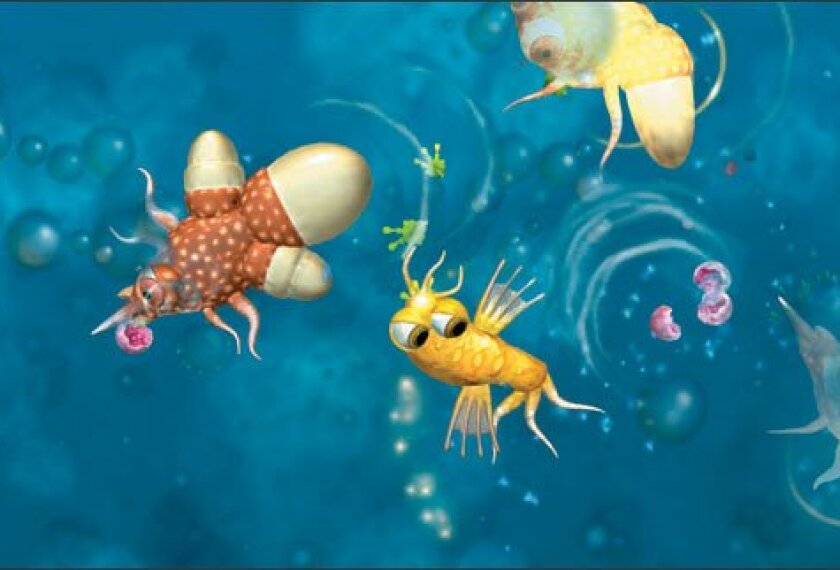A much-anticipated commercial computer game about evolution is getting a favorable response from some scholars, who welcome its interactive, engaging approach to the topic even though a few of its features sacrifice strict scientific accuracy to fun.
The game, called Spore, was recently released in stores across the United States. It gives users the ability to “evolve life,” or customize creatures by giving them traits that affect their ability to survive and prosper, as well as share their creations with a vast network of other game players.
Debates over how to teach about evolution, a foundational theory in the study of biology, have raged in schools for years. For a number of academic experts familiar with those debates who had heard of Spore or seen demonstrations of it, the game is a clever way to raise students’ interest in evolution.
But they also say that the game’s primary benefits are probably recreational, rather than educational, given some of the liberties it takes with the science of evolution.
Computer games like Spore “are a natural place for students to gravitate to,” says Joe Meert, an associate professor of geology at the University of Florida, in Gainesville, who covers evolution in his classes. He is a member of Florida Citizens for Science, a group that supports the teaching of evolution in public schools and opposes what it regards as unscienti?c alternatives to it.
“Even the things that it gets wrong, it could be a teachable moment,” Meert says. “Here’s something the game gets wrong. Why is it wrong?”
Spore was designed by Will Wright, known for having previously created popular games such as SimCity, which allows users to plan and build imaginary cities.
The evolution game allows users to create living things, from their inception as “pond scum” to fully evolved beings, by choosing advantageous features. Players can also build civilizations and entire worlds.
The theory of evolution, advanced most famously by Charles Darwin, posits that humans and other living things have evolved over millions of years through the process of natural selection—basically, survival of the fittest—along with random mutation.
In allowing students to control how a creature evolves, Spore employs a process of “external manipulation” that mainstream scientists would reject as unscientific, says Barbara Forrest, a professor of philosophy at Southeastern Louisiana University, in Hammond, who has written extensively about the history of evolution study.






